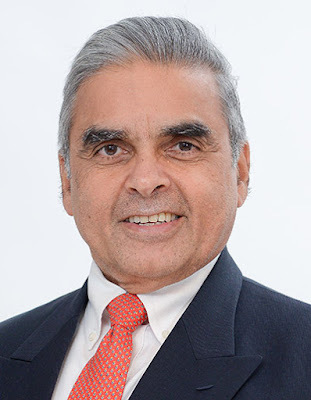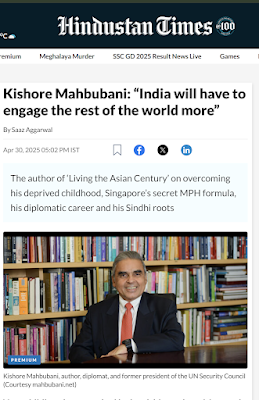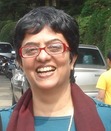Interview with Kishore Mahbubani for Hindustan Times

Saaz: Your childhood wasmarked by hardship, malnutrition, and poverty. You’ve spoken of the strengthand skills this gave you – how did you develop them? As a diplomat, whatsolutions would you suggest for helping children in similar situations?
Kishore: Since Singaporeis now one of the most affluent countries in the world, many Indians areunaware that at independence, Singapore was one of the poorest countries in theworld. In 1965, its per capita income was the same as Ghana in Africa: $500. Iexperienced this poverty personally. I was put on a special feeding programmewhen I went to school at the age of 6 as I was technically undernourished. Ourhome had no flush toilet. Debt collectors would come to our house regularly. Myfather went to jail. Yet, I was able to overcome many of these adversitiesbecause I had an unusually strong mother who never broke down under all thesepressures. The resilience I developed in my life was a gift from her to me.
One reason why I wrote mymemoirs is that I wanted to give hope to young people who may be suffering thesame kind of difficult childhood I had experienced. It’s good for young peopleto understand that people like them have overcome difficult circumstances.
Saaz: Your book praisesLee Kuan Yew (who often gave you a tough time) extensively. What measures fromhis leadership could India adopt for better development?
Kishore: Singapore’sexceptional success as a country was due in large part to three of itsexceptional founding fathers: Lee Kuan Yew, Dr Goh Keng Swee, and S.Rajaratnam. One of the great privileges of my life was getting to know allthree of them well. From them, I learnt a lot about how countries could succeedin development. I distilled many of the lessons I learned from them into theacronym “MPH”. In this case, it doesn't stand for “miles per hour” but for“Meritocracy, Pragmatism and Honesty”, which is the secret formula forSingapore's success.
Meritocracy is about choosingthe best people to run your organisation, society or country. Lee Kuan Yew wasinsistent that only the best should be selected to serve in the government.
Pragmatism is about beingwilling to learn best practices from any source anywhere in the world. Dr GohKeng Swee once said to me that no matter what problems Singapore encounters,somebody somewhere must already have encountered it. Hence, Singapore shouldproactively learn lessons from other countries. Dr Goh also pointed out thatsince Japan was the first Asian country to succeed, Singapore should studyJapan carefully if it wanted to succeed as well. India could also learn lessonsfrom Japan's development.
Honesty is about eliminatingcorruption. This is crucial as trust and stability are essential for an economyto thrive. Unfortunately, this is also the hardest principle to implement.
I believe that any society inthe world, including India, would succeed and do well if it implemented thesecret Singapore MPH formula.
Saaz: Could you tell ussomething about the different diplomatic communities you encountered?
Kishore: Walking into theUN headquarters and experiencing a real global village of representatives from159 countries was always a thrill for me. Though we all came from strikinglydifferent cultures and traditions, we were able to forge many close friendshipswith each other based on our common humanity.
When I joined the UN in 1984,some of my Arabian colleagues declared that I belonged to their tribe becausemy surname, Mahbubani, comes from an Arabic/Persian word, “mahbub,” which means“beloved.” Most Sindhis are Muslims. Due to my Sindhi roots, I felt some degreeof cultural affinity with both the Arab countries and Iran. And since I sporteda beard then, I was occasionally mistaken for an Iranian diplomat when I wasseen without a tie.
The ambassadors from the fivefounding member states of ASEAN—Indonesia, Malaysia, the Philippines,Singapore, and Thailand—came together like comrades in arms to defend ourcommon interests. I also became very close to the African ambassadors, whom Ifound to be incredibly reliable and trustworthy. If you became friends withthem, they would remain steadfast and stick with you through thick and thin.
I also worked with USambassadors who were polar opposites: Ambassador Vernon Walters was incrediblywarm and generous and won many friends for the US, while Ambassador JeanKirkpatrick was harsh and condescending towards the UN community in a bid towin favour with right-wing politicians at home. While American diplomats couldbe very direct and candid, they could also mingle easily with allnationalities. By contrast, European diplomats seemed to have an irrepressibledesire to preach to other countries about human rights issues. I was thereforeshocked to witness the incredible evasive skills of the Western diplomats whenI chaired the oversight committee of the UN Programme of Action for AfricanEconomic Recovery and Development (UNPAAERD). They expertly avoided making anyconcrete and binding commitments to help the African countries despite thepassionate speeches they had given in the UNGA about wanting to do so.
Saaz: Please tell us aboutyour visit to Sindh.
Kishore: When ShaukatAziz, whom I had met in New York and Singapore when he was the Vice Presidentof Citibank, became Prime Minister of Pakistan (2004 to 2007), he invited me tovisit Pakistan. I went to Karachi, Hyderabad, Islamabad and Lahore. It was afascinating visit. Then Pakistani High Commissioner to Singapore AmbassadorSajjad Ashraf also arranged a special visit to Hyderabad, where my mother hadgrown up. While my mother was sadly no longer with us, her brother, MrJhamatmal Kripalani, was able to draw me a map to their childhood home.Fortunately, we were able to find it.
Since I had grown up listeningto stories of how Muslims and Hindus had killed each other during Partition, Iexpected to encounter hostility in Hyderabad when I went to search for mymother's home. Instead, every Muslim person I met in Pakistan received me verywarmly and was delighted to see me. The reception could not have been warmer. Iwas glad to learn that a lot of the hostility from the Partition days haddissipated.
Saaz: As someone who hasmade Sindhis proud with your exceptional success, please suggest measures bywhich members of your community could enhance the way they are perceived.
Kishore: Sindhis are aremarkable people. There are very few ethnic groups in the world who havemanaged to succeed in all corners of the world. The Sindhis are one of them.Having visited most of the major cities in the world, I'm always pleasantlysurprised to see members of the Sindhi community thriving and succeeding in allcorners of the world. Indeed, I have first cousins in all corners of the world:in Suriname and Guyana in South America, in Texas and Florida in North America,in Ghana and Nigeria in Africa, in Japan and Hong Kong in East Asia, and ofcourse in Mumbai and Kolkata in India. I also have relatives in Europe. Theentrepreneurship of the Sindhi community is truly admirable.
In the next chapter of itsdevelopment, India will have to engage the rest of the world more. Its tradeand investment links with other countries will also increase. One of its majorassets as it plunges ever more deeply into globalisation will be the strong andsuccessful ethnic Indian communities overseas. Undoubtedly, the Sindhis willrank among some of the most successful Indians overseas. Their contributionsshould receive greater recognition within India.
Saaz: Your advice foryoung people who wish to follow a career in diplomacy?
Kishore: Diplomacy is oneof the best professions in the world to join. Since we live in a small andshrinking world, all countries must now make a major effort to understand othercountries and cultures all over the world. And the people who are best placedto do so are diplomats.
As I explain in my memoirs, Ihad no intentions of staying on in diplomacy, as I wanted to return to academiaafter graduating. However, I discovered diplomacy to be a more fulfillingprofession than academia. I realised that in trying to defend the interests ofa small country like Singapore in the international community, I was defendingan underdog. Ambassadors from smaller countries have to work harder thanambassadors from larger countries. Fortunately, with the help of reason, logicand charm (as I describe in my memoirs) I managed to succeed in furtheringSingapore’s interests in the United Nations and in the ASEAN community.
Golf proved to be very useful.Indeed, one reason why Southeast Asia, the most diverse corner on planet Earth,has had no wars in 50 years is that many of the Southeast Asian diplomats andleaders play golf with each other. This is also a lesson that South Asiancountries can learn from Southeast Asian countries: it’s important to investtime in developing personal connections with each other. Trust building andcooperation at the national level is incredibly difficult when there is nowarmth or trust on the interpersonal level.
aThis interview was published in Hindustan Times on 30 April 2025.
 https://www.hindustantimes.com/books/kishore-mahbubani-india-will-have-to-engage-the-rest-of-the-world-more-101746012772995.html
https://www.hindustantimes.com/books/kishore-mahbubani-india-will-have-to-engage-the-rest-of-the-world-more-101746012772995.html


